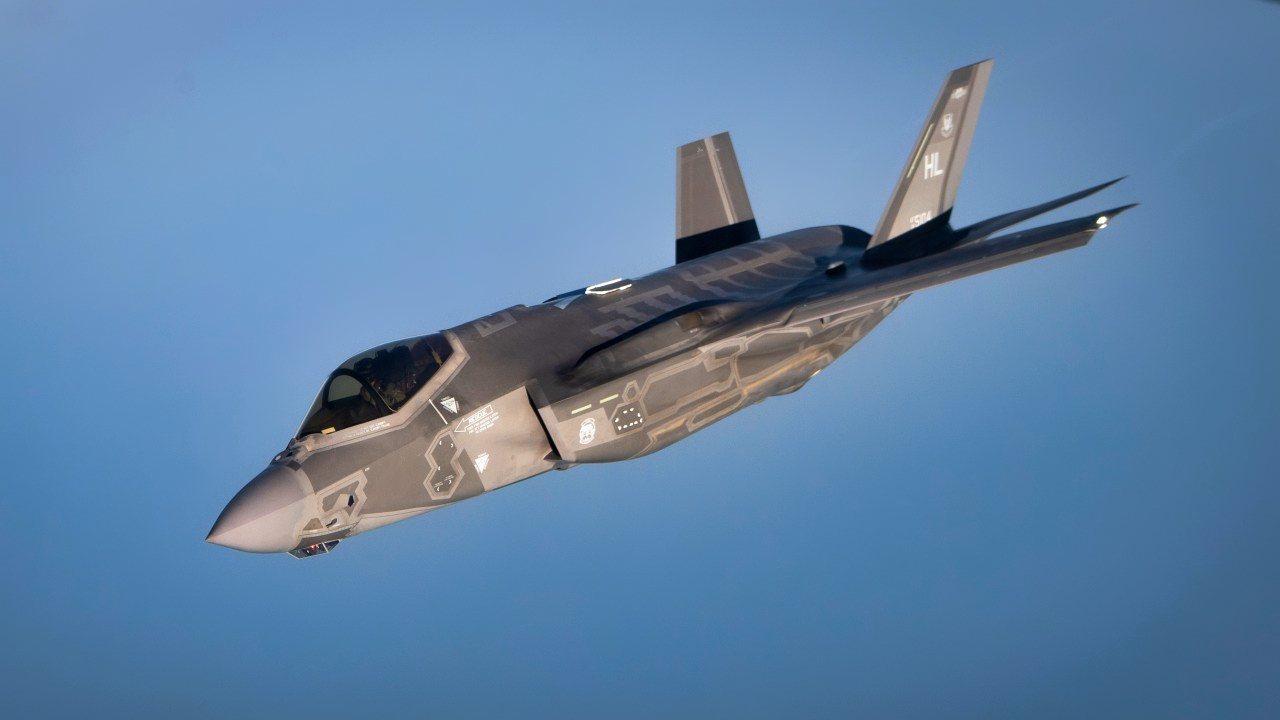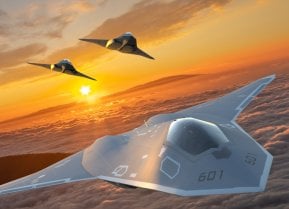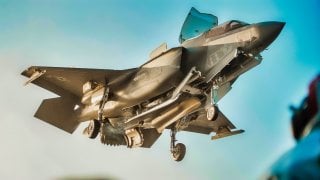China Is Freaked: Taiwan Wants the F-35 Fighter
Taiwan is reportedly seeking to procure F-35 Lightning II fighters, along with other advanced American defense systems, to bolster its ability to deter a potential Chinese invasion.
What You Need to Know: Taiwan is reportedly seeking to procure F-35 Lightning II fighters, along with other advanced American defense systems, to bolster its ability to deter a potential Chinese invasion.

-The F-35, renowned for its stealth, speed, and advanced weaponry, would significantly enhance Taiwan’s defense capabilities against the superior forces of China’s People’s Liberation Army.
-However, such a deal would likely exacerbate tensions between Beijing and Washington, potentially triggering further instability. As the Trump administration prepares to take office, the sale of F-35s to Taiwan could become a pivotal point in already strained Sino-American relations, with far-reaching implications for regional and global security.
Taiwan Wants F-35s: How Will China Respond?
The Taiwanese government is reportedly making another push to procure the American-made F-35 Lightning II fighter. According to the Financial Times, Taipei hopes to receive the formidable fifth-generation platform in addition to several E-2D Hawkeyes, Patriot missiles, and other retired warships.
Lockheed Martin’s Aegis Combat System could also be included in the potential deal, which uses satellites to detect and take out adversarial missile launches. A former Trump administration official was quoted reiterating that, “Taiwan is thinking about a package to show that they are serious,” adding that, “Assuming they follow through, they will go to the U.S. national security adviser when they are named and present a very aggressive package of American hardware.” If this deal comes to fruition, it would signal Taiwan’s determination to deter Chinese aggression.
Chinese President Xi Jinping has remained clear that the forceful annexation of Taiwan will be necessary without a “peaceful unification.”
To defend itself, Taipei would require advanced weaponry considering Beijing’s rapidly growing arsenal. InTheeople’s Liberation Army’s (PLA) massive and capable force undoubtedly is superior to the ROC’s existing defense forces. The inclusion of the F-35 fighter platform in Taiwan’s aerial fleet would elevate the nation’s ability to thwart such an invasion.
Why Taiwan wants the Lightning II
The American-made F-35 fighter is widely considered to be the best of its kind to ever fly the skies. Today, the Lightning II platform is flown by twenty nations, making it a critical asset to the U.S. and its partner nations. Equipped with an impressive ordnance load, stealth, high speed, and more, this multi-role fighter platform is nearly unstoppable.
The Pratt & Whitney F135 engine powers the jet, which enables it to reach speeds over Mach-1.6. In terms of armament power, the airframe can launch AIM-9X Sidewinder missiles which are known for being able to change course after being fired.
While in combat mode, the fifth-generation platform can transition into its “Beast Mode,” where it can carry up to 22,000 pounds of ordnance from advanced medium-range air-to-air missiles (AMRAAMs), Sidewinders, and joint direct action munitions (JDAMS). Like its F-22 Raptor predecessor, the F-35 was designed to feature a tiny radar cross-section which makes it more challenging for enemy aircraft to detect.
Potential Ramifications of an F-35 Delivery
Considering the Lightning II’s prowess in the skies, it makes sense it is on the top of Taiwan’s wish list. However, the U.S. has retained a policy of ambiguity when it comes to defending Taipei against a future Chinese incursion. Although providing weaponry does not go hand in hand with sending troops on the ground to aid in the island nation’s defense, this move would certainly disturb the peace with Beijing further.
Tensions between Beijing and Washington have only been on the rise and the prospects for an all-out war remain high. Such a conflict should be avoided at all costs, making the possible sale of F-35s a potential trigger point.
As the incoming Trump administration takes power once again, all eyes will be on the already wavering Sino-American relations.
About the Author
Maya Carlin, National Security Writer with The National Interest, is an analyst with the Center for Security Policy and a former Anna Sobol Levy Fellow at IDC Herzliya in Israel. She has by-lines in many publications, including The National Interest, Jerusalem Post, and Times of Israel. You can follow her on Twitter: @MayaCarlin. Carlin has over 1,000 articles published over the last several years on various defense issues.
Image Credit: Creative Commons and/or Shutterstock
From the Vault
F-35I Adir: Israel Has a Special Stealth Fighter Even America Doesn't Fly


